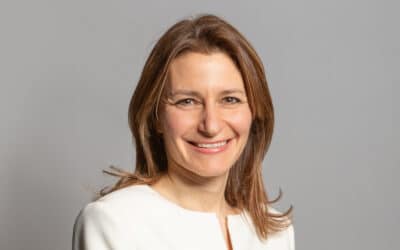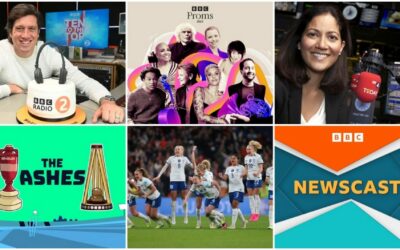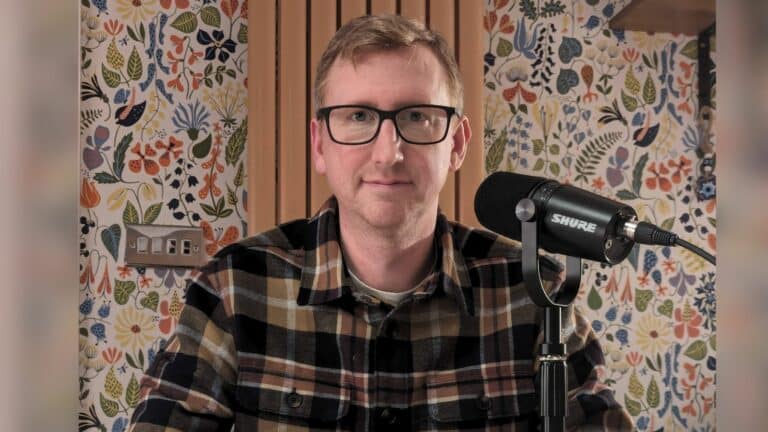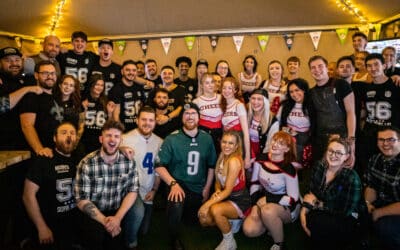BBC redundancies have plunged the future careers of dozens of experienced presenters, producers and journalists into uncertainty, with many now fearful over the future of local radio.
Last year, the BBC confirmed its plans to pivot to digital services meaning staff working at local BBC radio stations were hit the hardest, forced to either consider other roles or bow out of jobs they loved. The BBC continues to streamline its local radio services to cut costs, with some evening and weekend programming being replaced by regional or national programming.
“It’s been a long time since the changes were announced. It was over a year, that’s a long time to not know what’s happening,” Nick Wilmshurst tells Prolific North. For the past 24 years, he has worked across various BBC local radio and TV departments.
“There’s been a lot of uncertainty. It’s just unsettling and for it to go on for so long, some days it just made it hard going into work.
“Everybody’s feeling very down and you don’t quite know where you’re going to end up.”
It’s a bleak picture inside some local newsrooms. Regionalising local radio means remaining staff are now grappling with the fallout and with increasingly workloads, they are “doing the best they can”.
“We’ve not really seen any compulsory redundancies. People like me have just said: ‘Okay, I will go’. It’s an odd situation. It’s not an easy thing for anybody.”
As a senior journalist, most recently working at BBC Radio Leeds, after two decades he recently decided to take voluntary redundancy.
“I was a senior journalist, and any senior journalists who weren’t working on the breakfast show at the time either had to find another job at the same band or apply for a different job.
“I decided to go simply because I thought I’d rather just take the future into my own hands rather than wait for a bit longer to see what happens.”
The end of local radio? And his words of warning for BBC director-general Tim Davie
Although recent RAJAR figures discovered 88% of us are still tuning into radio shows every week, commercial radio is continuing to eat into the BBC’s audience.
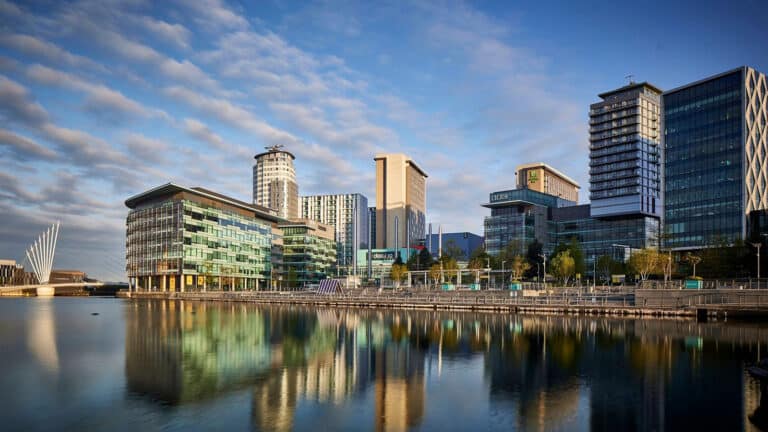
“This is all born out of there being a bit of a lack of investment, especially in marketing local radio for many years. That in itself has led to a declining audience, if you’re not telling people that BBC local radio exists, you’re not going to get new people tuning in.
“Look around any city centre, you’ll see adverts for Heart, Capital, they’re all there. When was the last time we saw an advert for BBC local radio? They don’t exist.”
The BBC recently announced the rollout of new radio schedules where many local radio stations will now share a big chunk of programming regionally.
“These changes have definitely been the biggest in local radio that I’ve ever seen. With radio, it’s always a little nudge here, we’ll just change the jingles there, we’ll just change presenters around a little bit or bring someone new in.
“But this is really big because suddenly, you have the afternoon show coming from Sheffield, and broadcasting across an entire huge region.
“We are seeing the end of local radio in some ways because some of it is now regionalised, but where does it go from here?” he asks. “A change of government, maybe things will get reversed? Who knows?”
One BBC radio fan recently felt compelled to call in to speak to us here at Prolific North, sharing their anger over the changes to local radio.
“It certainly has gone from being local radio to regional radio,” says Wilmshurst. “How that plays out, we shall see but a lot of people would say it’s not local radio then, is it?”
“It seems everybody, apart from Tim Davie and the senior management team, thinks this is a bad idea”
Pointing to the “hugely difficult time” the BBC is going through funding wise, he explains the minimal BBC licence fee increase is likely to affect even more services.
“The BBC has decided they want to put more resources into the digital offering. There is talk about making more podcasts locally, whether the hard working teams that are still left in local radio have the capacity to really do that, with the amount of other work they’ve got to do, I think remains to be seen.
“The other thing that remains to be seen is that there’s talk about producing more local online articles, just text. I’m not sure that that really fills the gap that local radio will leave behind it.
“While they are great, they don’t offer that voice you can engage with on the radio.”
With all the changes, I ask if there’s anything he would say to BBC director-general Tim Davie. “I would probably say, just think very carefully about the future of local radio,” he says.
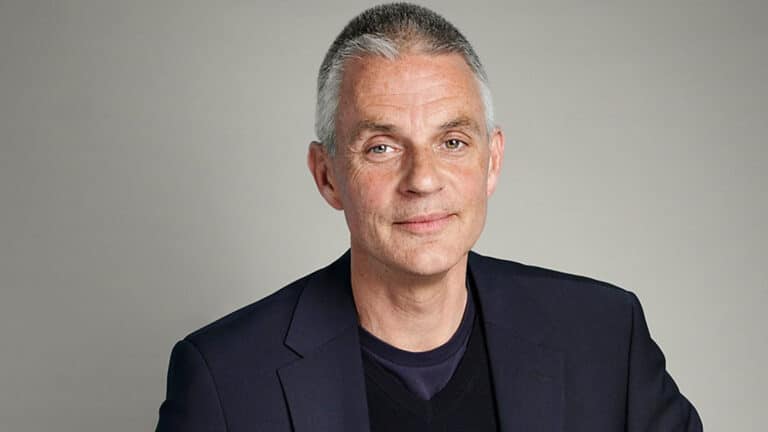
“It seems like everybody, apart from Tim Davie and the senior management team, thinks this is a bad idea. Once it’s gone, it’s going to be very hard to replace.
“He said very publicly, and many times to us, that if he was going to invest in anything at the minute, it wouldn’t be linear. With 88% of the population still wanting that particular product, should he think again?”
Radio days, BBC Breakfast and going it alone
As talented staff like Wilmshurst up and leave the BBC, it’s undoubtedly a loss for the broadcaster. But he looks back fondly on his lengthy career.
A former musician in a band called Stanley John, he jests his music career didn’t quite pan out the way he hoped when talks to join a record label fell through. He decided to write about music instead for a local paper, and later landed a job interviewing bands for BBC Radio Lincolnshire.
It was the first radio station to play the promo CD for Franz Ferdinand’s hit ‘Take Me Out’, with lead singer Alex Kapranos even appearing on the show before they hit the big time.
In 2007, he moved to Leeds where he started out on the BBC’s lunchtime radio show, before taking on the breakfast show. Soon enough he was meeting politicians like David Cameron and Gordon Brown, during their battle for No 10.
“Gordon Brown, lovely bloke, really wanted to know about you and asked you how your morning had been. David Cameron was a little bit more considered, a bit more in his bubble. It was very interesting to see a guy who probably knew his time was up versus the guy that was chasing being prime minister.”
He also had a lengthy stint working as producer on BBC Breakfast until 2017, a time when Bill Turnbull, Naga Munchetty and Louise Minchin all appeared on the red sofa.
From getting out of a “slightly sticky situation” to squeeze in singer Joss Stone’s full band into the studio, to meeting comedians, plenty of politicians, and stars like Blur frontman Damon Albarn, one moment in particular stands out – when he met Nigel Mansell.
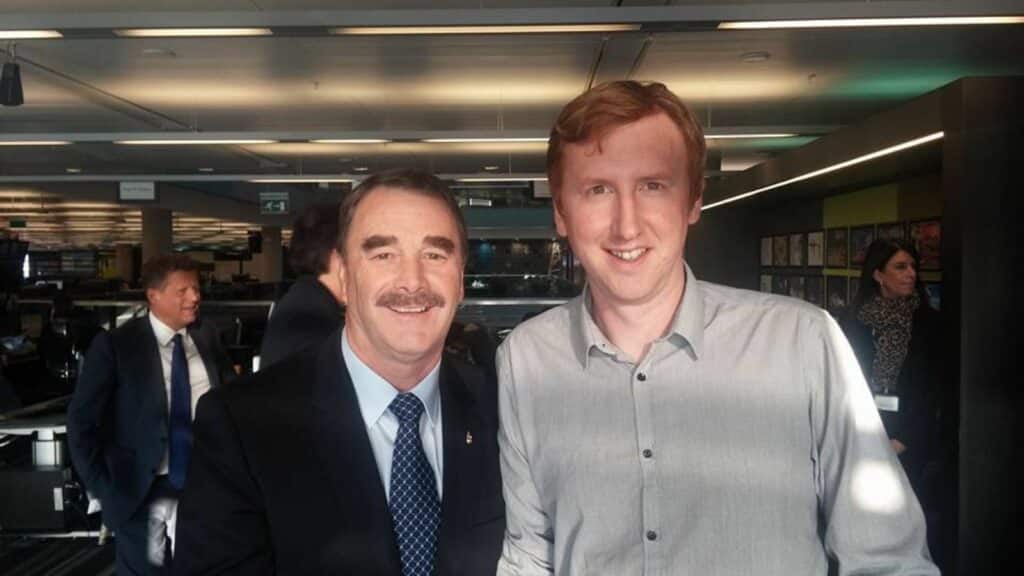
“He won the Formula One World Championship when I was 12. Meeting him in the flesh was just amazing and he’d grown back his moustache at that point. So it was like: ‘Oh, my God – it’s Nigel Mansell with a moustache!’”
Once eyeballing Ed Sheeran as they crossed paths in the newsroom, he regrets not mentioning something about being a fellow ginger. “I would have said: ‘you’re the number one ginger, congratulations, and then shake his hand. But I didn’t do it,” he laughs.
Working with “huge professionals” like broadcaster Bill Turnbull, who was diagnosed with prostate cancer in 2018 and later died in 2022, he reflects on the importance of talented staff.
“Bill Turnbull was just as much of a huge professional as a lot of people that work in local radio. They’re all absolutely brilliant at what they do, you just learn so much from each and every twist and turn in your career.”
He’s now made the decision to go it alone and has launched Ginger Wizard Productions, an audio marketing and podcasting company in Leeds.
“At the moment, my main focus is talking to marketing and PR companies and being their go-to person if a client wants a podcast or some form of audio as part of a campaign,” he explains.
As for what’s next, he plans to work with people based in the North because it “keeps fuel costs down,” he teases, but in all seriousness his dream collaborations would be with Yorkshire motorsport brands such as Ginetta or United Autosports, both based in Leeds, or Yorkshire Tea.
“I love working with people, bouncing ideas off people and drilling down into what we can do and how we can just make it a bit more creative and really engaging.”

